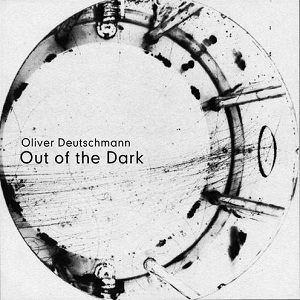Oliver Deutschmann Out of the Dark
From an extreme distance, it can be easy to assume that there’s a hard line […]

From an extreme distance, it can be easy to assume that there’s a hard line dividing the dancefloors of Berghain and Panorama Bar. It’s as simple as techno in one room and house in the other, with the club’s resident DJs fixed to the sound of their respective rooms. But the reality isn’t so strict, and the music played between the two is much more fluid. Though he’s not a resident of either space, Oliver Deutschmann is still a testament to this. The longtime Berlin-based artist has been a regular fixture behind the booth on both dancefloors, and the forking paths of his discography cover a lot of musical territory. And while previous releases have seen him embrace different sounds in their entirety, on Out of the Dark, his debut long-player, he sits somewhere in the middle of the Venn diagram dividing house and techno.
In the past, Deutschmann has gotten as jubilant as disco house, but his new record is tied together by a pervasive darkness that’s as much old-school Chicago as it is current-day Berlin. In a way, it often recalls the experiments of producers like Levon Vincent and Omar S, though it’s always too clean to ever be totally mistaken for their work. Case in point is opener “Fever,” which creates an edgy industrial environment from the clash of two distorted basslines. It’s acoustically large, and to some degree abrasive, but there’s an aspect of controlled restraint to the track that tempers its rawness into something smoother.
The LP reaches its stride about halfway through, when the tracks begin to pick up steam and approach the boundaries of techno. “Siem Reap 2013” is a minimal workout that blitzes its way through hallways of ghostly bell noises and appropriated “Ring My Bell”-style disco toms. “Die Tiefe” picks up and goes harder, with a crashing and slowed-down take on acid techno; its plucky synth hits and acid bassline repeat ad infinitum over rumbling 808 kicks and an assortment of other heavy drums. “Space Desert” brings to mind the alien landscapes of Detroit, with pads that stretch out in weird directions from the mostly static rhythm. But really, it’s “L.O.V.E.” that leaves the most distinct impression. Featuring a mostly Chicago-influenced take on percussion, it’s the heaviest track on the release, with an interesting arrangement that rises up and crashes back down with the call of a tone pushed to the far background. It’s a little bit of a cheap trick, but it works.
There is some less overtly club-related fare on the LP as well. “They Bleed Glitter” nearly sounds like an interpolation of Omar S’ “Here’s Your Trance, Now Dance!,” albeit without a steady kick drum to hold it down. What’s interesting is the way in which it diverges—Deutschmann injects some TB-303 acid and augments it with a subby bassline that ultimately manifests a broken kick pattern halfway through the track. It’s also cleaner and more manageable, but because of this, it doesn’t have the same sense of urgency. Similarly, “New World Order” employs a looping melody and odd spoken-word samples before descending into a particularly chaotic rhythm.
But for all its subtle left turns, the LP feels more like a compilation than it does a cohesive album. There’s a flow to it, but it’s mostly percussive and the tracks themselves would probably have lended themselves more to release as singles or separated EPs. Taken for what it is, it’s a mostly solid piece of work, but it’s just not distinct enough to recommend beyond DJs and hardcore fans.

